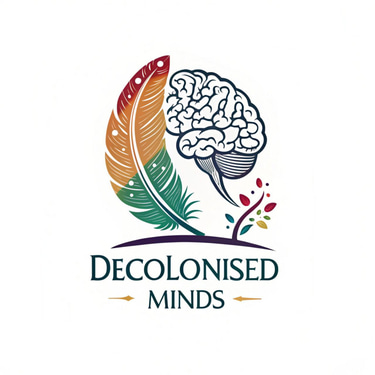The Role of Activism in Mental Health and Personal Empowerment
This article explores how activism combats systemic oppression and promotes mental health. It highlights activism's role in fostering agency, community, and connection, which can alleviate feelings of helplessness and isolation. By integrating activism into therapy, individuals can reclaim their voice, contribute to social change, and enhance personal empowerment.
By Talha AlAli, Founder of Decolonised Minds
5/8/20242 min read
Activism is a powerful tool for addressing systemic oppression and fostering personal empowerment. Beyond its societal impact, activism can also promote mental health by providing individuals with a sense of purpose, community, and agency. For those navigating the psychological effects of marginalisation, activism offers a pathway to reclaim their voice and transform feelings of helplessness into action. In a therapeutic context, encouraging activism can complement individual healing by addressing the broader structural factors that contribute to mental distress.
Activism as a Path to Agency
Systemic oppression often leaves individuals feeling powerless, disconnected, or overwhelmed. This sense of helplessness is linked to higher rates of anxiety, depression, and other mental health challenges (Gee & Ford, 2011). Activism helps counteract these effects by fostering agency, or the belief that one can influence their circumstances. By engaging in collective action, individuals can challenge oppressive systems and contribute to meaningful change, regaining a sense of control over their lives.
Research indicates that activism can have positive psychological outcomes. A study by Klar and Kasser (2009) found that individuals involved in activism reported greater life satisfaction and well-being compared to non-activists. The process of advocating for justice aligns personal values with tangible actions, fostering a sense of coherence and self-efficacy.
Community and Connection
Activism also builds community, an essential factor for mental health and resilience. Many individuals facing systemic oppression experience isolation or alienation. Activist spaces offer opportunities to connect with others who share similar experiences and goals, creating a sense of belonging and mutual support (Christens, 2012). These connections provide emotional validation and collective strength, reducing the burden of individual struggles.
Therapeutic Applications of Activism
Incorporating activism into therapy can empower clients to address both personal and structural challenges. Therapists can help clients identify causes that align with their values and guide them in finding meaningful ways to contribute. This process transforms the therapeutic journey from a focus on individual adaptation to a broader pursuit of justice and systemic change.
Conclusion
Activism is not only a force for social change but also a pathway to mental health and personal empowerment. By reclaiming their voice and contributing to collective action, individuals can challenge systemic oppression while fostering agency, connection, and purpose. As such, activism deserves recognition as a vital component of holistic mental health care.
References
• Christens, B. D. (2012). Toward relational empowerment. American Journal of Community Psychology, 50(1-2), 114–128.
• Gee, G. C., & Ford, C. L. (2011). Structural racism and health inequities. Du Bois Review: Social Science Research on Race, 8(1), 115–132.
• Klar, M., & Kasser, T. (2009). Some benefits of being an activist: Measuring activism and its role in psychological well-being. Political Psychology, 30(5), 755–777.
